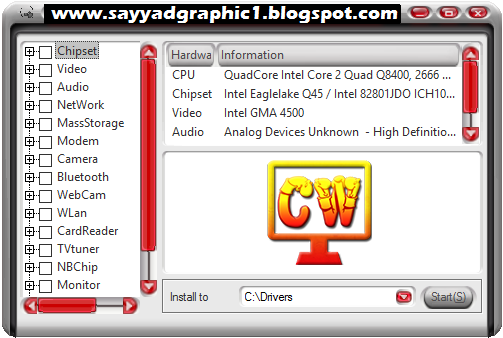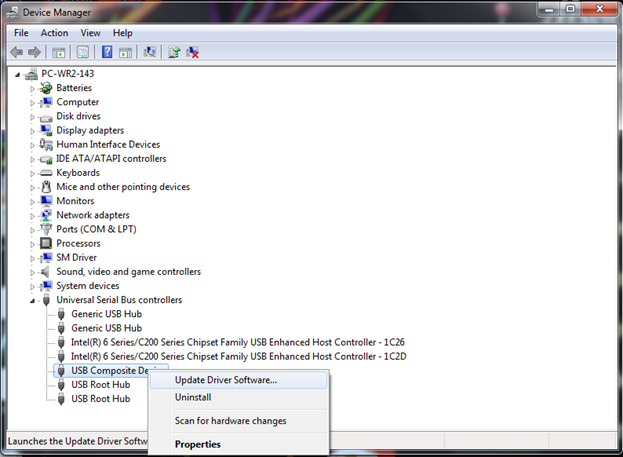ASUS USB Mass Storage Reader Device Driver By ASUSTeK Computer Free Download.com has removed the direct-download link and offers this page for informational purposes only. Usb Mass Storage Device Drivers free download - USB Mass Storage Controller, Samsung USB Mass Storage Device, USB 2.0 Mass Storage Device, and many more programs. SCR3310 USB Smart Card Reader.
Although Windows 98 has been out of general circulation for well over a decade now, it might come as a surprise to some people that it’s still actively in use, especially in a business or specialized environment for running old software. There is actually a third party Service Pack for Windows 98 Second Edition which is still being updated well into 2013, even though Microsoft ended their support for Windows 98 on the 11th of July 2006! Obviously, hardware support from all major manufacturers has ended years ago so if you or your company still run Windows 98 in some capacity, it’s incredibly difficult to find compatible hardware and software for it.
As an example, a company I did some work for a while back purchased a Kingston Data Traveler USB flash drive for backup purposes on a computer that’s still running Windows 98. The problem is, due to some obsolete software that needs to run on Windows 98, the computer cannot be upgraded to newer versions of Windows such as 8, 7, Vista or even Windows XP. I’ve tried compatibility mode on Windows XP and it doesn’t work either, so it’s either upgrade the software or continue using Windows 98. Updating the old software is very expensive, so the decision was to stay with Windows 98 and try to source parts that can support this ageing operating system.
The immediate problem was getting the flash drive to work. Windows 98SE is actually not too bad at handling mass storage drivers for a USB storage device IF you have a driver disc that accompanied it or a download is available. 98SE doesn’t come with a generic mass storage driver that would install support for all standard USB storage devices like newer Windows versions, so not every device you insert will simply get recognised. Predictably, Kingston offers no support for their devices in Windows 98 so no driver can be installed to pick up the flash drive.
After much searching and testing, I finally managed to install the Kingston DataTraveler on Windows 98. This following method which I’m about to show you can work for most USB mass storage devices if your Windows 98 has detection problems. What I found was a generic Windows 98SE USB mass storage device driver that will work with many makes and models of the following:– USB Flash Drives
– Digital Photo and Video Cameras (that connect to the PC via USB)
– USB Hard Drives
– MP3 Players (including Apple iPod from v2.4)
– Sony PlayStation Portable (PSP)
This driver isn’t guaranteed to work with all devices because it’s a generic driver, and you shouldn’t install it if you have no issues in the first place. It does though work well for the purpose it was intended for, it did for me and has for many other people.
Installing the generic USB Mass Storage driver
1. Download Windows 98SE Generic USB Mass Storage Device Driver to the desktop.

2. Open Device Manager (right click My Computer -> Properties -> Device Manager) and remove ALL drivers for USB flash drives. This includes any drivers of removable devices previously installed from the “Disk drives” tree.
3. Remove all drivers for any USB controllers (under Universal Serial Bus controllers). Devices in Device Manager can be uninstalled by right clicking on an entry and selecting “Remove”. Also remove any Unknown/Other devices, those which have no installed driver.
4. Run the nusb36e.exe driver installer. After that has completed, reboot the computer.
5. During reboot, the computer will detect new devices and USB controllers and will ask for the Windows 98 install CD so make sure you have it to hand. The driver install window actually tells you to reboot after these controllers are installed but I didn’t have to. If you have any issues, then follow the advice and reboot a second time.
6. Then insert your USB storage device and it should get picked up by Windows. Don’t forget Windows 98 cannot read NTFS so the storage device needs to be formatted with FAT/FAT32 to be recognised with a drive letter. Open My Computer and your flash drive or device should be visible.
The 16GB flash drive above wasn’t a Kingston but still required the general USB mass storage driver to be installed for it to be detected. Do note that this driver is for English versions of Windows 98SE only and won’t work on the original Windows 98. You can visit the related MSFN forum thread for more support or updates to the driver in future.
-->Starting with Windows 2000, the operating system provides native support for many USB mass storage devices. The Usbstor.inf installation file contains device IDs for those devices that are explicitly supported. If the USB hub driver enumerates one of these devices, the operating system will automatically load the USB storage port driver, Usbstor.sys.
The device IDs for USB mass storage devices in Usbstor.inf take the usual form for USB device IDs composed by using information in the USB device's device descriptor:
USBVID_v(4)&PID_d(4)&REV_r(4)
Where:
v(4) is the 4-digit vendor code that the USB committee assigns to the vendor.
d(4) is the 4-digit product code that the vendor assigns to the device.
r(4) is the revision code.
In addition to these device IDs, Usbstor.inf contains compatible IDs for class 8 ATAPI CD-ROM and removable media devices that support bulk-only transport:
USBCLASS_08&SUBCLASS_02&PROT_50
USBCLASS_08&SUBCLASS_05&PROT_50
USBCLASS_08&SUBCLASS_06&PROT_50
Where:
class 08h = mass storage devices.
subclass 02h = SFF-8020i ATAPI CD-ROM devices.
subclass 05h = SFF-8070i ATAPI removable media.
subclass 06h = generic SCSI media.
protocol 50h = the bulk-only transport protocol.
If the data retrieved from the device's device descriptor matches any of these compatible IDs, the operating system will load Usbstor.sys.
As soon as it is loaded, the USB storage port driver creates a new PDO for each of the device's logical units. For more information, see the example device stack created by Usbstor.sys illustrated in Device Object Example for a USB Mass Storage Device.
When the PnP manager queries for the device identification strings of the newly created PDOs, the USB storage port driver creates a new set of device, hardware and compatible IDs derived from the device's SCSI inquiry data. The device ID format is as follows:
USBSTORv(8)p(16)r(4)
Where:
v(8) is an 8-character vendor identifier.
p(16) is a 16-character product identifier.
r(4) is a 4-character revision level value.
An example of a device ID for a disk drive would be as follows:
USBSTORSEAGATE_ST39102LW_______0004
The hardware IDs that the USB storage port driver generates are as follows:
USBSTORt*v(8)p(16)r(4)
USBSTORt*v(8)p(16)
USBSTORt*v(8)
USBSTORv(8)p(16)r(1)
v(8)p(16)r(1)
USBSTORGenericTypeString
GenericTypeString
Where:
t* is a SCSI device type code of variable length.
v(8) is an 8-character vendor identifier.
p(16) is a 16-character product identifier.
r(4) is a 4-character revision level value. In these additional identifiers, r(1) represents just the first character of the revision identifier.
The following table contains the SCSI device type codes used by the USB storage port driver to generate identifier strings.
| SCSI type code | Device type | Generic type |
|---|---|---|
DIRECT_ACCESS_DEVICE (0) | Disk or SFloppy | GenDisk or GenSFloppy |
SEQUENTIAL_ACCESS_DEVICE (1) | Sequential | GenSequential |
WRITE_ONCE_READ_MULTIPLE_DEVICE (4) | Worm | GenWorm |
READ_ONLY_DIRECT_ACCESS_DEVICE (5) | CdRom | GenCdRom |
OPTICAL_DEVICE (7) | Optical | GenOptical |
MEDIUM_CHANGER (8) | Changer | GenChanger |
Default Type (all values not listed previously) | Other | UsbstorOther |

These examples show the hardware IDs that are generated by the USB storage port driver:
USBSTORDiskSEAGATE_ST39102LW_______0004
USBSTORDiskSEAGATE_ST39102LW_______
USBSTORDiskSEAGATE_
USBSTORSEAGATE_ST39102LW_______0
SEAGATE_ST39102LW_______0
USBSTORGenDisk
GenDisk
The USB storage port driver generates two compatible IDs.
USBSTORt*
USBSTORRAW
where t* is a SCSI device type code of variable length.
The compatible IDs generated by the USB storage port driver are illustrated by the following examples:
Usb Mass Storage Device Windows 10
USBSTORDisk
Mass Storage Controller Drivers Free Download
USBSTORRAW

Comments are closed.